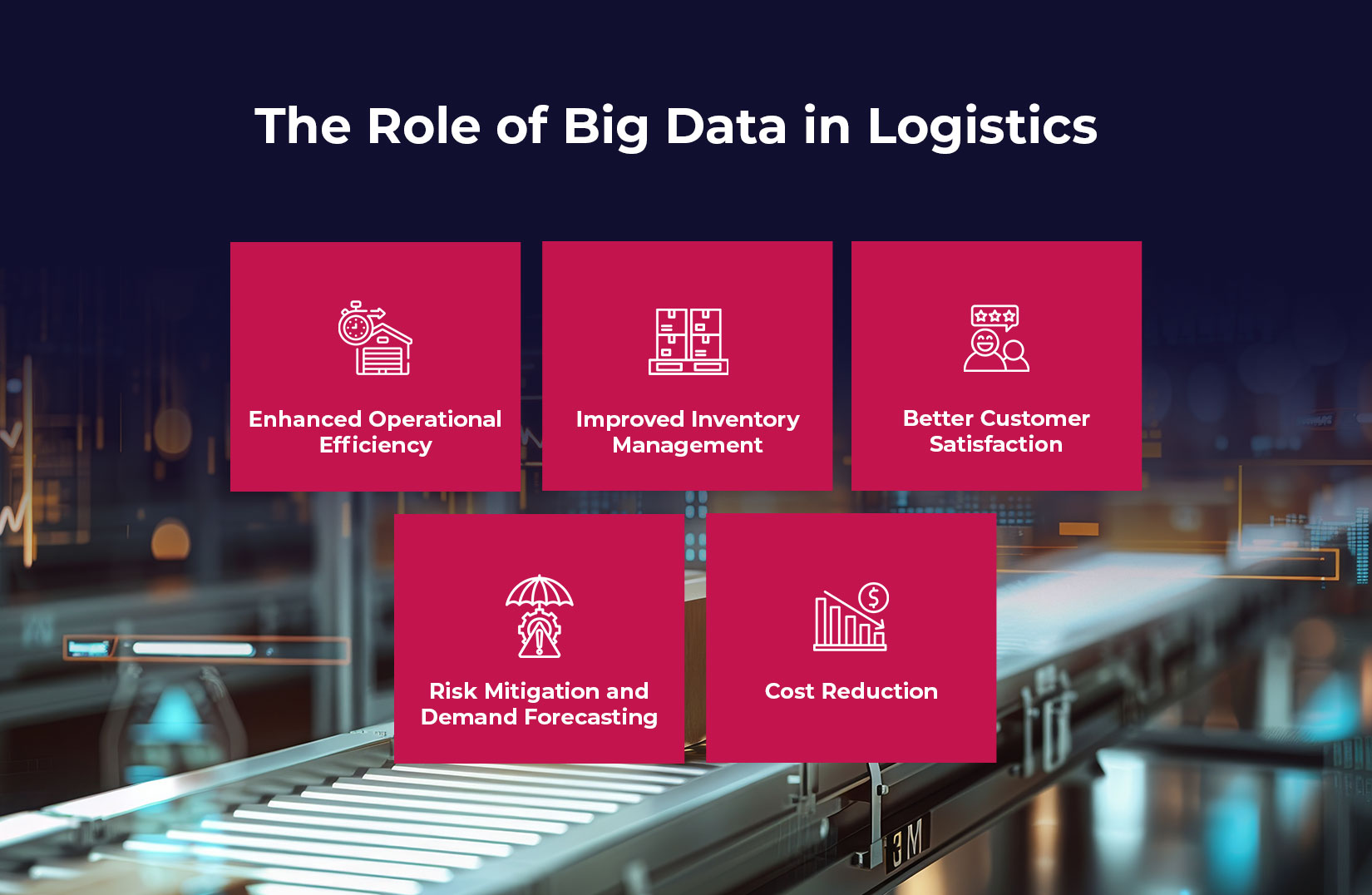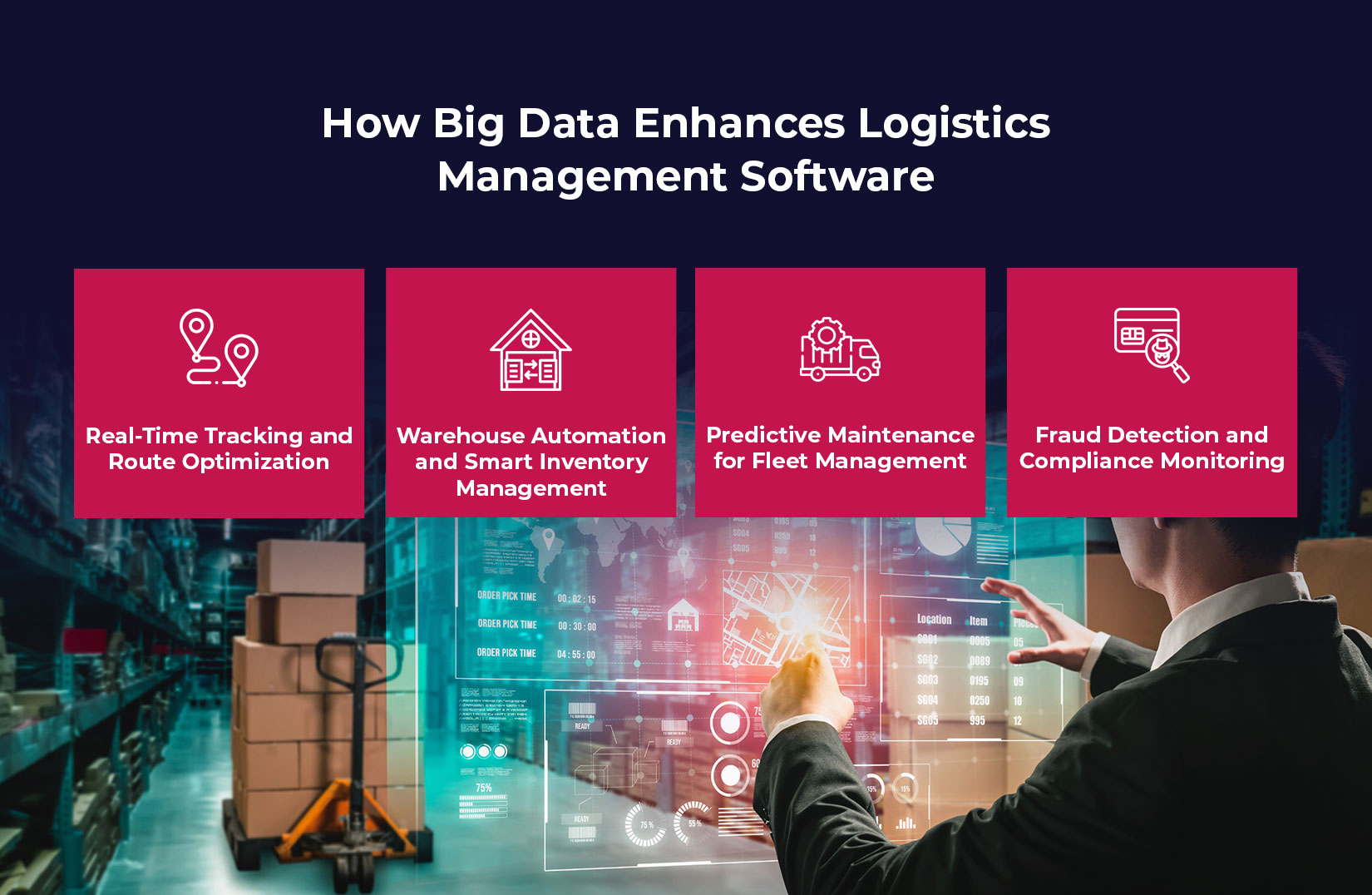
Data-Driven Decision Making in Logistics: Harnessing the Power of Big Data
In today’s fast-paced supply chain environment, logistics companies must leverage technology to maintain efficiency, reduce costs, and enhance customer satisfaction. One of the most transformative advancements in this field is data-driven decision-making powered by big data. By integrating big data analytics into logistics management software, companies can optimize operations and gain a competitive edge.
The Role of Big Data in Logistics

Big data refers to vast volumes of structured and unstructured data that can be analyzed for insights. Logistics companies generate massive amounts of data daily, including shipment tracking, inventory levels, delivery schedules, and customer feedback. When processed using a logistics management system, this data helps businesses make informed decisions and predict future trends with high accuracy.
1. Enhanced Operational Efficiency:
Logistics software equipped with big data analytics enables companies to streamline operations. By analyzing traffic patterns, weather forecasts, and real-time tracking data, businesses can optimize delivery routes, reducing fuel costs and improving delivery times. According to McKinsey, companies that use data analytics in logistics can reduce operational costs by up to 15%. Additionally, the use of AI-driven route optimization has been shown to cut delivery times by up to 20%.
2. Improved Inventory Management:
Data-driven decision-making ensures that businesses maintain optimal inventory levels. A logistics management solution can analyze sales trends and supply chain disruptions, helping companies avoid stockouts or overstocking. A study by Capgemini found that businesses leveraging predictive analytics reduced inventory costs by 20-30%. Furthermore, the implementation of real-time inventory tracking can reduce holding costs by up to 25%.
3. Better Customer Satisfaction:
Consumers expect real-time updates on their shipments. Logistics management software with big data capabilities provides accurate tracking, estimated delivery times, and automated notifications. This level of transparency builds trust and improves customer experience. According to PwC, 70% of consumers consider real-time tracking an essential service, and businesses that offer it experience a 10-15% increase in customer satisfaction scores.
4. Risk Mitigation and Demand Forecasting:
Unpredictable events, such as supply chain disruptions or demand fluctuations, can impact logistics operations. A data-driven logistics management system uses historical data and predictive analytics to anticipate potential risks and adjust strategies accordingly. This proactive approach minimizes financial losses and ensures business continuity. Research by Gartner shows that predictive analytics can improve demand forecasting accuracy by 20-50%, reducing waste and improving planning.
5. Cost Reduction:
Logistics companies face significant operational costs, including fuel expenses, warehousing, and labor. Big data enables businesses to analyze cost patterns and implement strategies that enhance efficiency. According to a report by PwC, companies that embrace data-driven logistics save up to 10% in supply chain expenses. Additionally, businesses using automated logistics solutions have reported a 30% reduction in administrative costs.
How Big Data Enhances Logistics Management Software

1. Real-Time Tracking and Route Optimization:
Traditional route planning methods often result in delays and increased costs. Modern logistics management software leverages GPS tracking, AI, and big data to analyze traffic conditions and determine the most efficient routes. This reduces fuel consumption and enhances delivery speed. Studies show that companies using AI-powered logistics software can reduce fuel costs by 15-20% and improve on-time deliveries by 25%.
2. Warehouse Automation and Smart Inventory Management:
Logistics management systems equipped with big data analytics facilitate warehouse automation. Smart sensors track stock levels, monitor product movements, and predict inventory demands, reducing human error and increasing efficiency. According to a study by Deloitte, warehouse automation can improve operational efficiency by up to 40% and reduce labor costs by 20%.
3. Predictive Maintenance for Fleet Management:
A well-maintained fleet is crucial for seamless logistics operations. Logistics software powered by big data can monitor vehicle performance, detect potential mechanical failures, and schedule maintenance before a breakdown occurs. This reduces downtime and extends vehicle lifespan. According to industry reports, predictive maintenance can reduce unplanned downtime by 30-50% and lower maintenance costs by 10-20%.
4. Fraud Detection and Compliance Monitoring:
With global supply chains expanding, security risks and compliance issues are increasing. Big data helps logistics management solutions identify fraudulent activities, track anomalies in shipment routes, and ensure regulatory compliance, safeguarding businesses from financial losses. Research shows that AI-powered fraud detection systems can reduce financial losses by up to 25%.
Implementing a Data-Driven Approach in Logistics
To fully harness the power of big data, logistics companies must integrate a robust logistics management system that offers real-time analytics, predictive insights, and automation features. Here are key steps to implementing a data-driven strategy:
1. Invest in the Best Logistics Management Software:
Choose software that offers comprehensive analytics, AI-driven automation, and seamless integration with existing systems.
2. Standardize Data Collection:
Ensure that all departments collect data in a structured manner to enable accurate analysis.
3. Leverage AI and Machine Learning:
Use AI-powered logistics software to process large datasets efficiently and derive actionable insights.
4. Train Employees on Data Utilization:
Equip staff with the necessary skills to interpret and apply data insights in decision-making.
5. Monitor and Optimize Continuously:
Regularly review analytics reports to identify areas for improvement and implement necessary adjustments.
Conclusion
Big data is revolutionizing the logistics industry by enhancing efficiency, reducing costs, and improving customer satisfaction. By integrating data analytics into logistics management software, businesses can make smarter decisions, mitigate risks, and stay ahead of the competition. Investing in the best logistics management software with advanced analytics capabilities ensures that companies optimize their supply chain operations and drive long-term success.
As logistics continues to evolve, embracing a data-driven approach will be key to achieving operational excellence and meeting the ever-changing demands of the global market. So, click on the red button below and invest in the best logistics management software by LogiNext. Book a demo to know more.
20







@LogiNext